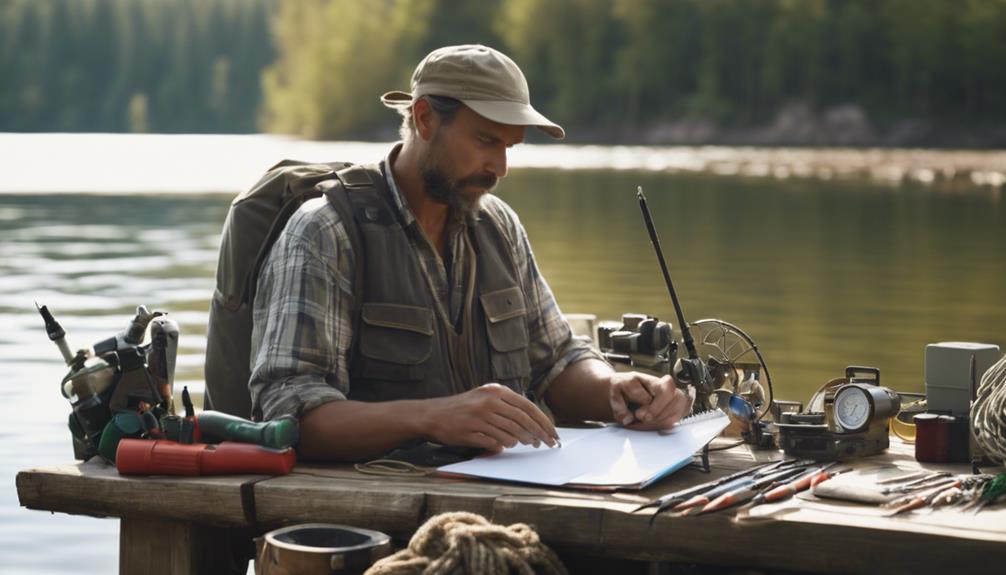Fishing is a beloved pastime for many, offering relaxation, adventure, and a connection to nature. However, before casting your line into the water, it’s essential to understand the regulations regarding fishing licenses. This guide will cover everything you need to know about who needs a fishing license, ensuring that your fishing experiences are enjoyable and compliant with the law.
Understanding Fishing Licenses and Their Importance
Fishing licenses are permits issued by state or provincial governments that grant individuals the right to fish in certain waters. The primary purpose of these licenses is to manage fish populations and ensure sustainable fishing practices. By requiring licenses, authorities can monitor fishing activities, implement conservation measures, and protect aquatic ecosystems. Moreover, the funds generated from fishing licenses often go towards wildlife conservation and habitat restoration, benefiting both the environment and the fishing community.
Who Requires a Fishing License?
In general, anyone aged 16 years and older needs a fishing license to fish in public waters. However, specific regulations may vary by state or province. It’s crucial to check local laws, as some areas have different requirements for residents and non-residents. Additionally, certain exemptions may apply, such as for children under 16 or seniors over a certain age. Some states also offer free fishing days, allowing individuals to fish without a license during specific times of the year. Always verify with your local fish and wildlife agency to ensure compliance.
Exceptions to the Fishing License Requirement
While most individuals require a fishing license, there are exceptions. Many states allow individuals under a certain age, often 16, to fish without a license, provided they are accompanied by a licensed adult. Additionally, some states grant exemptions for individuals with disabilities, veterans, or other specific groups. It’s also common for states to have designated free fishing days, where anyone can fish without a license. Understanding these exceptions can enhance your fishing experience and make it more accessible.
Types of Fishing Licenses Available
Fishing licenses come in various types, catering to different needs and preferences. Most states offer regular fishing licenses for residents and non-residents, which allow fishing in designated waters. Additionally, there are specialized licenses for specific types of fishing, such as saltwater fishing, freshwater fishing, or licenses that permit fishing in particular regions or for specific species. Some states also offer short-term licenses for visitors or those who fish occasionally. Familiarizing yourself with the types of licenses available will help you choose the right one for your fishing adventures.
The Consequences of Fishing Without a License
Fishing without a valid license can lead to severe consequences, including hefty fines and legal repercussions. Wildlife officials actively patrol fishing areas to ensure compliance with fishing regulations. If caught without a license, you may face penalties ranging from monetary fines to confiscation of your fishing gear. In some cases, repeat offenders could even face misdemeanor charges, which can result in court appearances and additional fines. To avoid these consequences, always ensure you have the appropriate fishing license before heading out to fish.
How to Obtain a Fishing License
Obtaining a fishing license is a straightforward process. Most states offer online applications, allowing you to purchase your license from the comfort of your home. You can also obtain a license at local bait shops, sporting goods stores, or government offices. When applying for a fishing license, you’ll typically need to provide identification, proof of residency (if applicable), and payment for the license fee. Keep in mind that fees vary by state and type of license, so it’s wise to check your local regulations for accurate information.
Renewing and Maintaining Your Fishing License
Fishing licenses are not issued indefinitely; they often require renewal on an annual basis or after a specific period. It’s essential to keep track of your license expiration date and renew it promptly to avoid lapses in legality. Some states provide automatic renewal options, which can make the process even easier. Additionally, maintaining your fishing license ensures that you stay informed about any changes in fishing regulations or conservation efforts in your area. Regularly reviewing your local fish and wildlife agency’s updates can enhance your fishing experience and promote responsible fishing practices.
Encouraging Responsible Fishing Practices
Obtaining a fishing license is just one step in promoting responsible fishing practices. As anglers, it’s our responsibility to follow regulations, respect conservation efforts, and practice catch-and-release methods when necessary. Adhering to size and bag limits, using appropriate gear, and fishing in designated areas are all vital aspects of responsible fishing. By doing so, we contribute to the preservation of aquatic ecosystems, ensuring that future generations can enjoy the same fishing experiences we cherish today. Remember, a fishing license is not just a permit; it’s a commitment to sustainable fishing practices.
Conclusion
Understanding who needs a fishing license is essential for anyone looking to enjoy this rewarding hobby legally and responsibly. By familiarizing yourself with the requirements, obtaining the appropriate license, and practicing responsible fishing, you can enhance your fishing experiences while contributing to the conservation of our natural resources. So before you head out to your favorite fishing spot, make sure you’re compliant with local regulations, and enjoy the tranquility and excitement that fishing has to offer. Happy fishing!
